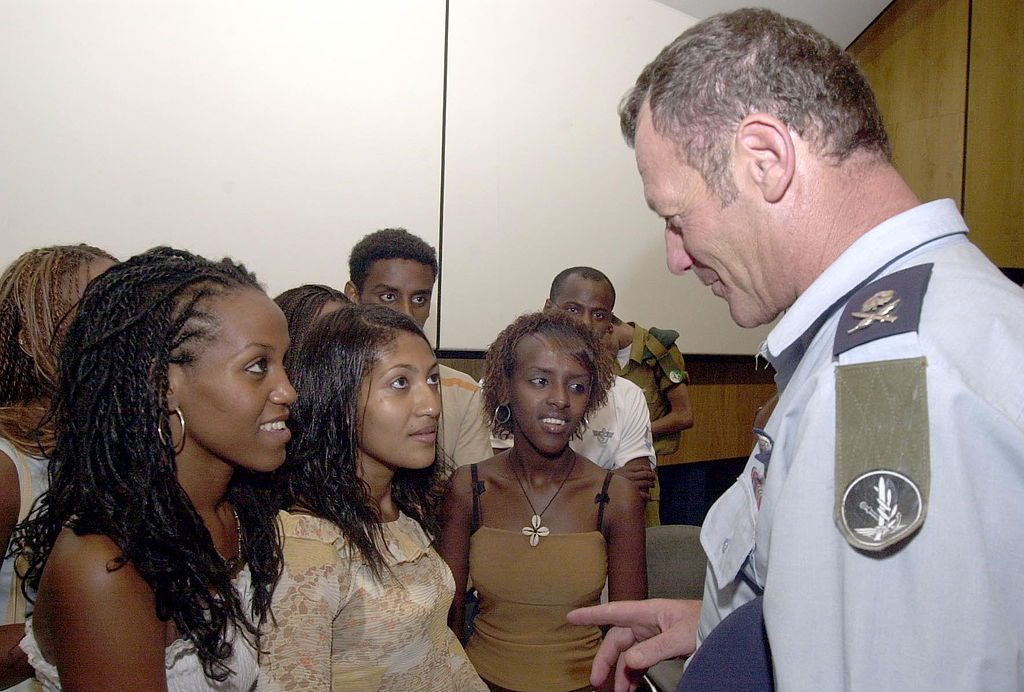The fault lines in Israeli society must be addressed and begin to heal if Israel is to survive

Copyright: Israel Defense Forces [CC BY-SA 2.0 (https://creativecommons.org/licenses/by-sa/2.0)]
Jews who followed Jesus in the first century AD and Jews who chose not to did not agree on much, but they did agree on one thing: the Jewish establishment in the years leading to the calamitous Great Revolt against Rome in 70 AD was as corrupt as they come. Priestly families were lining their pockets at the expense of regular folks and made the Second Temple into their private source of revenue.
Even before the revolt the growing gaps between the rich and the poor and the secularists and the observant were being stretched beyond the limit. In fact, they didn’t even speak the same language. While most of the lower classes still spoke Hebrew, the professional and upper classes spoke Aramaic, Greek, and Latin. Life as a Roman province of little importance must have been difficult, but Jews enjoyed a high level of autonomy, since Rome preferred to keep its legions where they were needed and its administrative organs in the Roman-style cities they had built for themselves along the Mediterranean coast, like Caesaria. The problem that led to the burning down of Jerusalem and the destruction of the Second Temple, the reason Judea was renamed Paelestina with disastrous consequences that we are still dealing with today was not Romans, it was Jews.
Today, Israel is by any measure successful beyond what anyone could have expected. It has exceeded the dreams of the boldest leader of the Zionist movement. And yet the old divisions are creeping in again, once more threatening Jewish independence. Today, just like back then, we are faced by an overwhelming secular culture driven by a global superpower, a culture whose temptations are almost impossible to resist. Consequently, many Israelis are drifting away from religion and tradition, a drift that is causing dismay in many others, forcing them to retrench and become more militantly observant.
Growing up in Israel, the observant Jews who chose to serve in the IDF were all from the Zionist Nationalist movement. They wore short beards or no beards at all and small knit kippot (yarmulkes). Today, in addition to those, there are many ultra-Orthodox or Haredim soldiers and even officers. Secular politicians like Avigdor Lieberman who represents arguably the most secular sector of Israeli society, the first and second generation repatriates from ex-Soviet countries, find themselves in a quandary. On one hand they promised their constituents equal sharing of the burden of military service in active duty and in the reserves. On the other, highly observant Jews do not change or secularize when they enlist. They object to being stationed with female personnel and even to participating in events in which female singers and entertainers appear. They require many other areas of special dispensation and there is the suspicion that should an order from their superior run afoul of their beliefs, it will be their beliefs that they will follow.
Israel has achieved tremendous success as an entrepreneurial and high technology powerhouse and those Israelis who work in that sector enjoy high salaries commensurate with those found in Silicon Valley. Unfortunately, other Israelis, those who work as teachers and even doctors and especially those who work for non-unionized small businesses make wages that would be considered below the minimum in America for similar jobs. Since the market for everything from real estate to food products is driven by the high income earners, those Israelis are left in the dust, with few prospects of bettering their lives, not being able to afford an apartment of their own, or even make ends meet.
The constant stress of the struggle to make a living is beginning to express itself in many appalling ways, including the recent incident of serious child abuse by a woman who ran a daycare out of her house, an incident that was caught on video and made the social media rounds. Today, the woman’s daycare and house burnt to the ground, the apparent victim of arson by enraged parents.
Marginal communities, notably including the community of repatriates from Ethiopia, are bearing the brunt of Israel’s bifurcated economy. While the details of the deadly incident that led to an off-duty police officer fatally shooting an “Ethiopian” youth are still being investigated, the violent response by the community is surely a wake-up call.
The double-clutch Israeli election was caused by the lack of success in the results of the first round to resolve the secular-observant issue to the satisfaction of a sufficient number of members of the Knesset. We shall see what the September election brings, but that issue as well as the wealth gap are bound to be front and center. Israel today unlike the Judea of 70 AD has a vibrant democracy, a flourishing economy, political independence, the military might to repel any foreign aggression, and hence much more to lose by succumbing to internal strife. None of this is a guarantee that we won’t, but our chances are good. We just need to love each other every day as much as we love each other when the sirens sound on Remembrance Day.
- The West Has Drag Queen Story Hour While Putin Protects Children
- The Adorable Little Russian Girl Born Without A Face Gets A New Chance At Life


